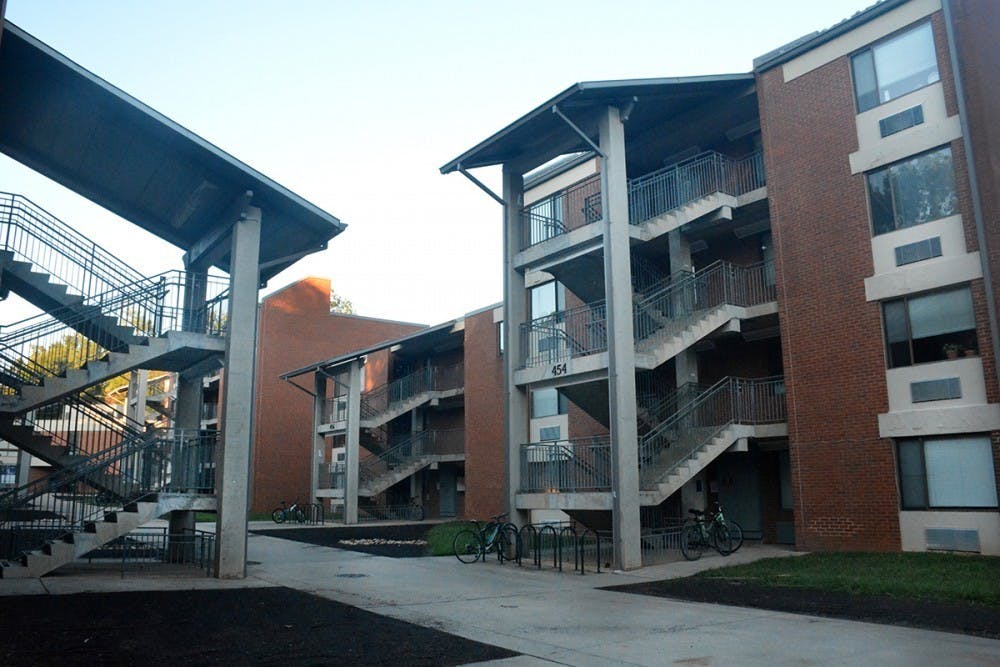As part of the University’s 10-year strategic plan designed to make U.Va. the best public university by 2030, the Board of Visitors is considering a proposal to require students to live on Grounds for their first two years. Currently, all first-year students and 36 percent of second-year students live in University housing.
On Feb. 27, University President Jim Ryan told The Cavalier Daily that the University should “definitely be looking into” increasing housing options for second-year students. He suggested that the University consider requiring all second-year students to live on Grounds in order to help solve difficulties first-year students face finding housing for their second year, a process which typically begins as early as September due to the competitive housing market and shortage of apartments near the University.
“We do a really admirable job of bringing in a diverse group of students,” Ryan told The Cavalier Daily in an interview Sept. 9. “But because of our roommates selection system and because of our housing system, I don't think we do enough to take advantage of that diversity.”
Ryan said requiring students to live on Grounds until their second year would allow students to have “the opportunity to meet people from all different walks of life” and increase the residential learning experience of students.
“I think we're losing an opportunity for students to learn from one another when they only have a year to live together,” Ryan said. “My hope is that this will connect to a broader initiative around creating residential communities for all students. We can't snap our fingers and create residential colleges, but I think we can create residential communities that you're apart of during your four years.”
University Spokesperson Wes Hester noted that this residential reorganization would not be ready for implementation for next year but instead is a goal that the University is trying to reach in the next couple of years.
“The second-year housing initiative is a long-term project that is still being developed,” Hester said. “We do not have a specific timeline yet.”
Ryan also said that the University is exploring the possibility of taking away the ability for first-year students to request their roommates — a move that several other colleges like Duke University and New York University have made because students tend to segregate by race, geography or socioeconomic background, which undermines efforts for students to learn new perspectives.
For the Class of 2023, 61 percent of incoming first-year students specified a preferred roommate on their housing applications, according to Hester. Housing and Residence Life was able to honor all mutual roommate requests that were submitted by the deadline, he added.
“We're talking this year about having a different way of selecting roommates,” Ryan said. “I don't know that we would go to a completely random or go to some kind of match [system] based on a questionnaire.”
“Some colleges do it in different ways, but a number of colleges have recently gone away from allowing students to select their roommates to either assigning them based on either an elaborate questionnaire or a pretty short questionnaire,” Ryan added.
Currently, on-Grounds housing options for second-year students include Bice House, Bond House, Brown Residential College, Copeley Apartments, Faulkner Apartments, Hereford Residential College, International Residential College, Lambeth Field Apartments and the three Language Houses.
Ryan also noted that the potential housing changes could play a role in helping to alleviate the housing shortage in Charlottesville. The rate of homelessness in Charlottesville has nearly doubled in the past five years and disproportionately affects middle-aged adults and black citizens.
“I do think it's a potential way to increase the supply of housing for non-U.Va. students if more of them are moving on Grounds,” Ryan said in February. “The basic reality is if there are fewer U.Va. students living in an off-campus housing that off-campus housing is going to be more available to people who are not U.Va. students, including those who work here.”







